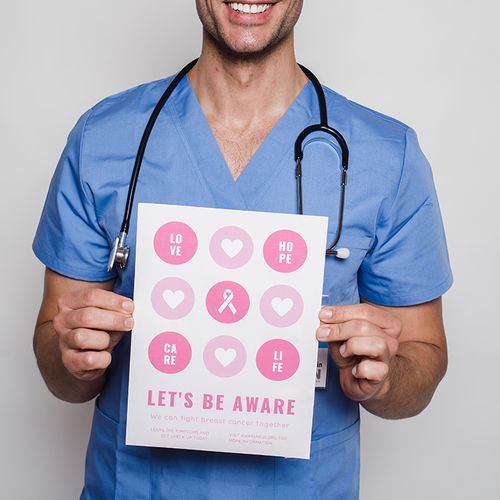How doctors choose to treat their breast cancer patients—and whether those treatment choices follow established recommendations may play a larger role in whether a cancer returns than experts have believed.
Study Findings
In a new analysis looking at 994 women with ductal carcinoma in situ, the most common type of noninvasive breast cancer, researchers found treatment variations from surgeon to surgeon are significant, and may account for up to 30% of recurrences.
The report was published in the Journal of the National Cancer Institute.
"Treatment variation is a troubling but well-known phenomenon in health care," said study author Andrew W. Dick, PhD, a researcher at RAND Corporation in Pittsburgh. "The reason it is surprising in this case is that the variation is quite large, and related to factors that are very important in health outcomes," Dr. Dick said.
Those factors include having "negative margins"-meaning that cancer cells are more than 2 millimeters away from the removed tissue's edge-and getting radiation therapy after breast-conserving surgery.
The variation by surgeon in treatments accounted for 15% to 35% of cancer occurring in the opposite breast in the next five years and 13% to 30% of recurrences over 10 years, the investigators found.
Expert Reaction
The study is well done, said Beth A. Virnig, PhD, MPH, a professor of health policy and management at the University of Minnesota School of Public Health and co-director of the Cancer Outcomes and Survivorship Program at the university's Masonic Cancer Center.
She co-wrote an editorial to accompany the study.
"They basically said, after taking into account all this stuff that matters-how big the tumor is, its grade and which treatment it turns out a third of how the patient does is due to their physician," she said.
While Dr. Virnig is not surprised at the variations in treatments, the amount of variation surprised her.
The findings are complex, she said, and so many factors determine outcome that there is no simple way to guarantee a woman has the best possible doctor and treatment.
One solution, Dr. Virnig said, is to develop a kind of scoring system for breast cancer surgeons. But she acknowledges that this may not be feasible.
Expert Advice
Meanwhile, Dr. Virnig suggested that women can boost the odds of getting optimal treatment by asking their surgeon how many procedures the doctor does—with more being better, though she can't provide a "good enough" number. "Many studies, but not all, show teaching institutions are better" when it comes to breast cancer treatments, she said.
If a scoring system were developed, said Dr. Dick, "I would like the system to evolve in such a way that the consumer doesn't have to be the fully informed expert."
Meanwhile, he said, women facing breast cancer should get their doctors' views on radiation therapy after breast-conserving surgery and the importance of negative margins-both of which are associated with a lower risk of recurrence.
